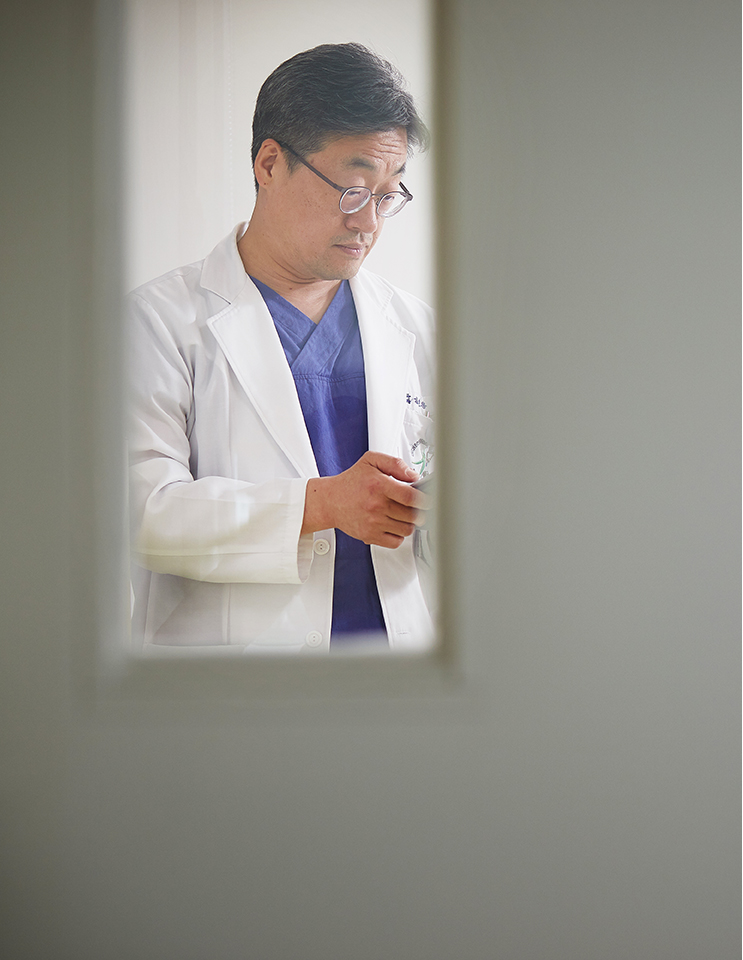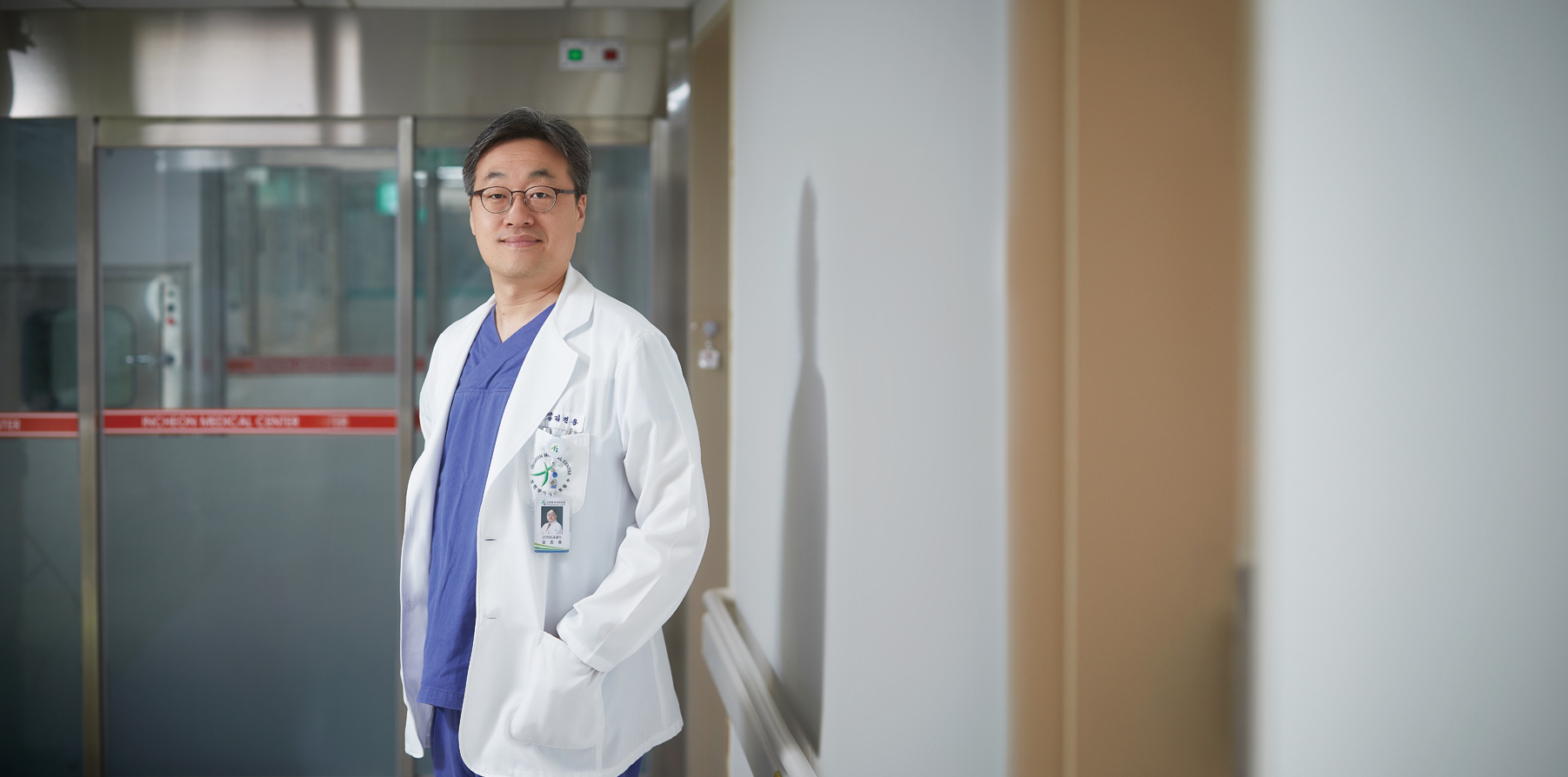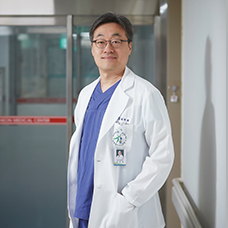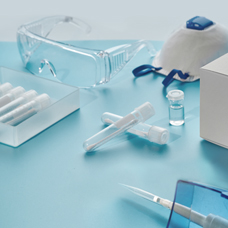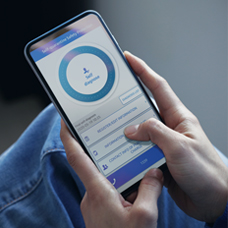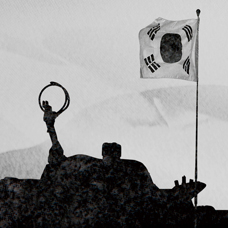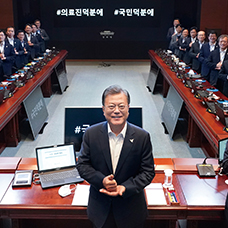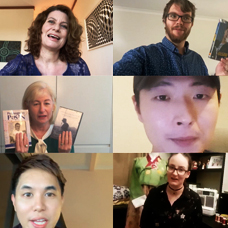Interview
Public Health Hero
Dr. Kim Jin Yong, a specialist in infectious disease and internal medicine at Incheon Medical Center, has received global accolades for his invention of the drive-thru screening center, which has been benchmarked by other countries. He also holds the distinction of treating the nation’s first confirmed COVID-19 patient to full recovery.
Written by• Kim Jane
Photographed by• Studio Kenn
Dr. Kim Jin Yong works at a government medical facility, Incheon Medical Center, which considerably differs from a private facility on numerous levels. Unlike the majority of hospitals that selectively admit patients based on social class, his center accepts all patients regardless of class or ethnicity. Soon after the outbreak of the novel coronavirus disease (COVID-19) in Korea, his hospital was designated by the government as a primary facility for COVID-19 treatment.
As a medical practitioner, Kim weighed in on what Korea did correctly. First, he said wide participation in preemptive measures by the people greatly helped the national response to COVID-19, stressing the critical role of non-pharmaceutical intervention. Second, he hailed the exceptional diagnostic capacity displayed by the country’s medical professionals. With keen precision, he said, they aggressively fleshed out patients, suspected patients and those potentially infected. After diagnosis, suspected cases or infections are followed up with prompt care. “Aggressive testing and conducting supportive care in a shrewd and effective manner were indeed game changers,” he added.
The critical role of non-pharmaceutical intervention is precisely why Kim stressed that everyone must remain vigilant as a society. Though he said that he and fellow medical personnel reached “a relatively stabilized rhythm of operations in contrast to previous months of combating the virus,” he urged “society and its constituents” to conduct “collective measures of defense.”
“Like most things, that’s easier said than done. It takes more than just a mandate or advisory protocol for societies to change. If I or any other doctor pointed out the lack of sanitation in public areas we frequent or echo other medical concerns from professionals in the field, will they be heeded?” he said. “Anything less than a collective effort will fall short of having an impact. For healthy habits and practices to settle into routine, individuals need to act of their own accord.”
On the public’s heightened attention to sanitary behavior, he said, “It does indicate meaningful progress. We’re learning, albeit the hard way, together as a civilization, though I wonder whether such extra precautions might’ve prevented the pandemic to begin with.”
Spirit of Cooperation
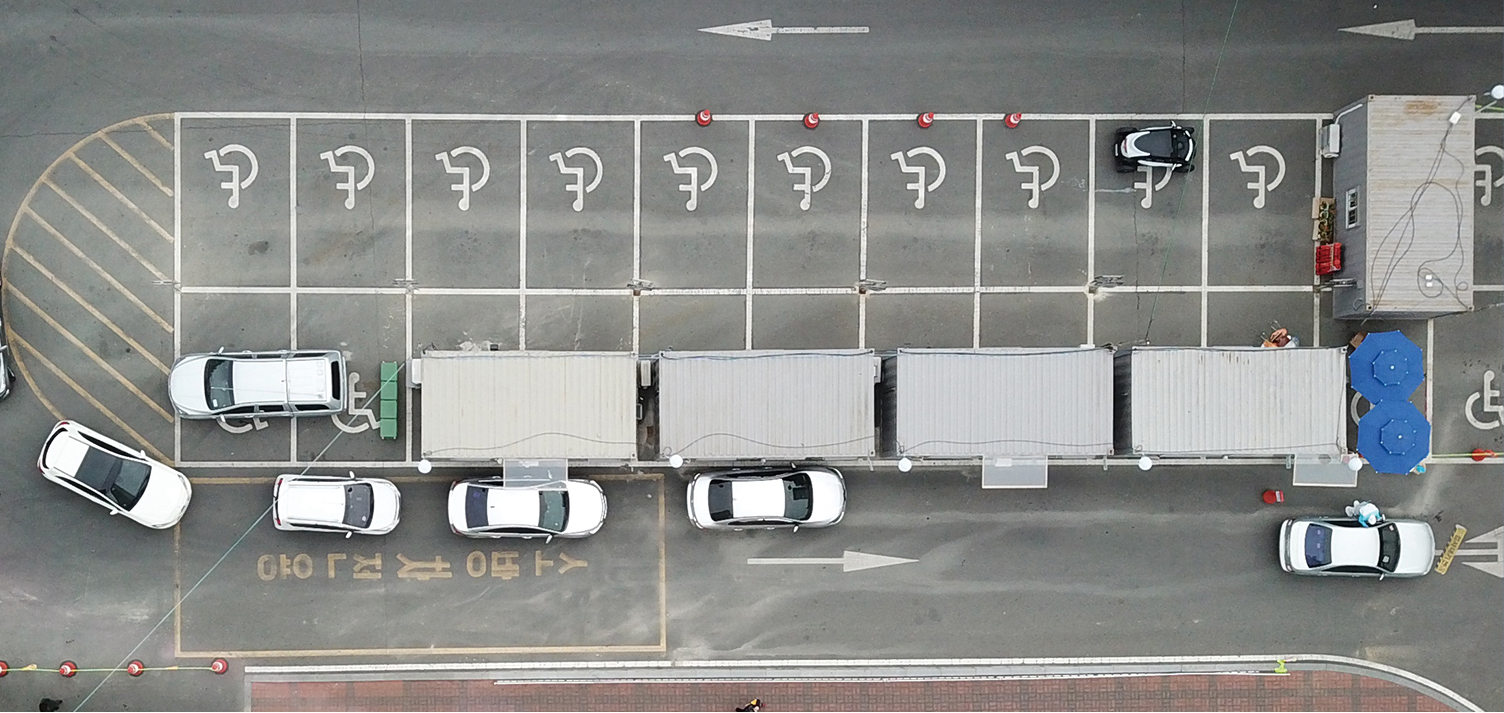
As of March 2020 and under Korea’s testing standards, Dr. Kim’s drive-thru screening clinic only takes a third of the time that it previously took per test. © YonhapNews
“Yuval Harari’s March 20 Financial Times article on ‘The World after Coronavirus’ resonates with me, especially his emphasis on the need for global solidarity. I believe the (latter) term captures the essence of how we must define our approach in overcoming the crisis. The concept is indeed viable on multiple levels,” the doctor said. On the national effort to overcome the crisis, he said, “Whether it be policymakers, governors, scholars or practitioners, every cooperating entity has its own stance, many of which are bound by its own operational systems. It’s natural for divergent stakeholders to experience conflicts of interest. The key is to cooperate because without solidarity, none of us will get anywhere.”
A glance at his research and listed co-authors shows how he values collaboration. “Practical applications like the drive-thru (screening clinic) rely on details needing affirmation by relevant experts. From my medical standpoint, I’d claim the necessity for a ventilation system but wouldn’t know how best to structure it,” he said. On the facility surrounding him, Kim said, “Building negative pressure wards, another imperative in COVID-19 treatment, requires a physicist’s guidance.”
In Korean society, doctors are often judged by where they attended medical school and connections can be crucial in getting positions. With degrees from less-than-elite schools, Kim said he never fit in with the “mainstream” Korean medical network, but added that keeping a relative distance from his peers granted him greater liberty in his work and research.
Tough Field
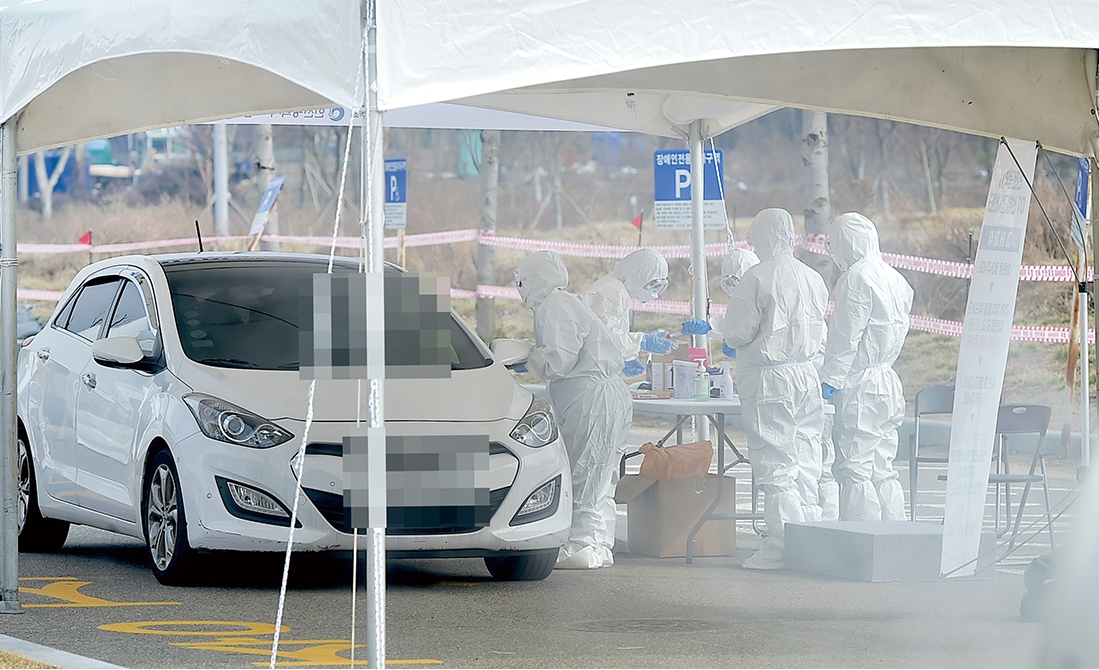
The advantages of drive-thru testing booths include ensuring a testee’s privacy, preventing cross-infection via natural ventilation and minimizing contact through e-payment.© Incheon Medical Center
Kim is hardly a novice in tackling novel viruses. He diagnosed Korea’s first suspected case of the Middle East respiratory syndrome (MERS) in 2013. “Countries with relative success in curbing the current pandemic have had to deal more intensely with prior pandemics in the 21st century,” he said, apparently referring to Taiwan and Singapore. He noted that several essential resources were provided to his surrounding facilities in the wake of the MERS outbreak in Korea.
“We don’t get repeat patients. They either make it or they don’t,” he said, referring to the life-and-death nature of infectious diseases. Though devoted to his field and aware of its dangers, Kim said his heart goes out to fellow staff members who await proper credit for their contributions. Turnover is high in his branch of medicine, and though he has stayed for the duration of two pandemic cycles, nobody else has, he said.
Citing that SARS, MERS and COVID-19 consist of shared strains, he added, “It’s an unfortunate reality that professionals who contributed to our last response to a pandemic are no longer here to leverage their prior experience as a group.”
